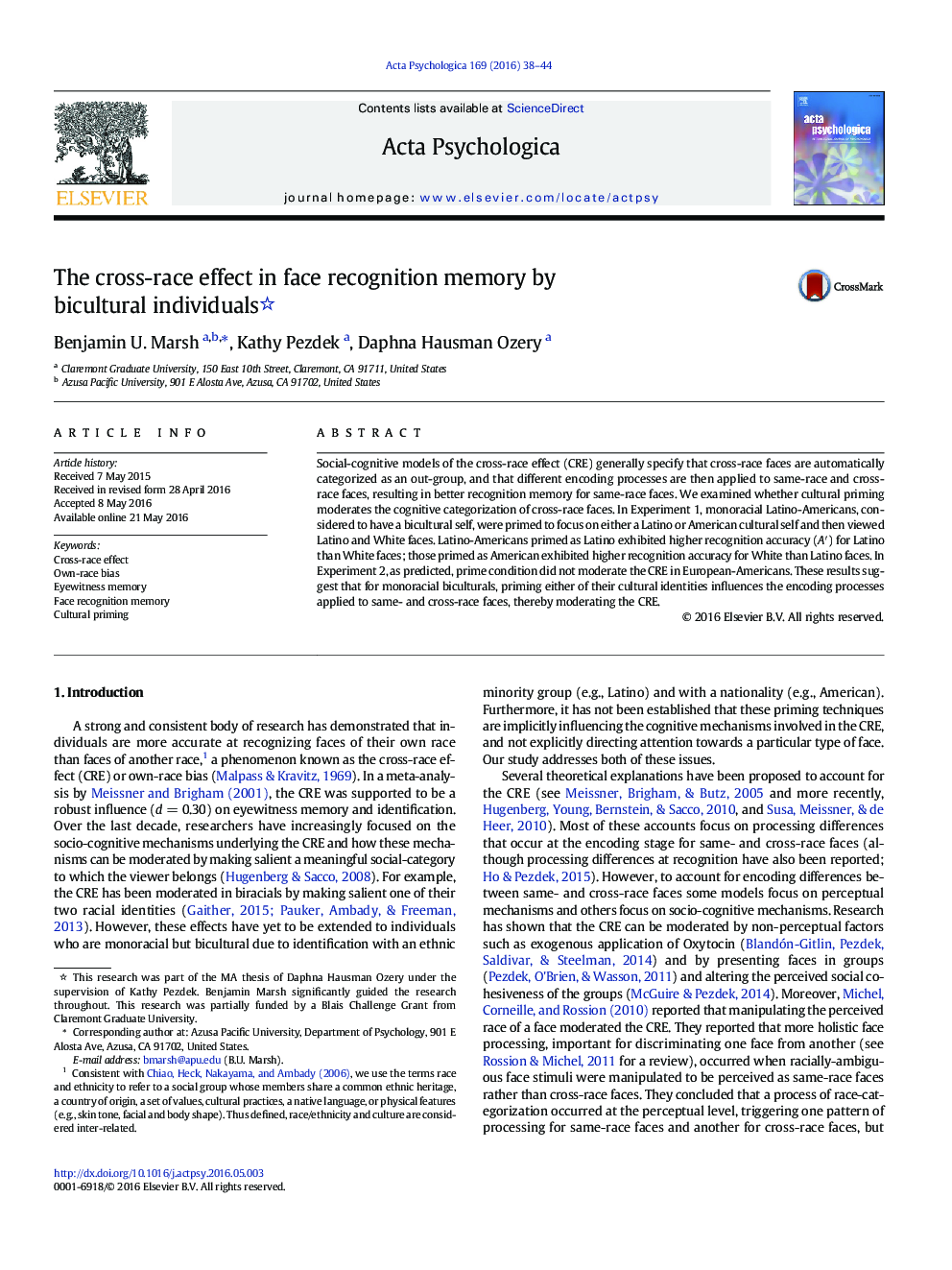| کد مقاله | کد نشریه | سال انتشار | مقاله انگلیسی | نسخه تمام متن |
|---|---|---|---|---|
| 919620 | 1473589 | 2016 | 7 صفحه PDF | دانلود رایگان |
• Cultural priming moderates the cognitive processing of same- and cross-race faces.
• Latino Americans were primed to focus on their Latino or American cultural self.
• Recognition memory was tested for Latino and White faces.
• The Latino prime produced higher recognition accuracy for Latino than White faces.
• The American prime produced higher recognition accuracy for White than Latino faces.
Social-cognitive models of the cross-race effect (CRE) generally specify that cross-race faces are automatically categorized as an out-group, and that different encoding processes are then applied to same-race and cross-race faces, resulting in better recognition memory for same-race faces. We examined whether cultural priming moderates the cognitive categorization of cross-race faces. In Experiment 1, monoracial Latino-Americans, considered to have a bicultural self, were primed to focus on either a Latino or American cultural self and then viewed Latino and White faces. Latino-Americans primed as Latino exhibited higher recognition accuracy (A′) for Latino than White faces; those primed as American exhibited higher recognition accuracy for White than Latino faces. In Experiment 2, as predicted, prime condition did not moderate the CRE in European-Americans. These results suggest that for monoracial biculturals, priming either of their cultural identities influences the encoding processes applied to same- and cross-race faces, thereby moderating the CRE.
Journal: Acta Psychologica - Volume 169, September 2016, Pages 38–44
